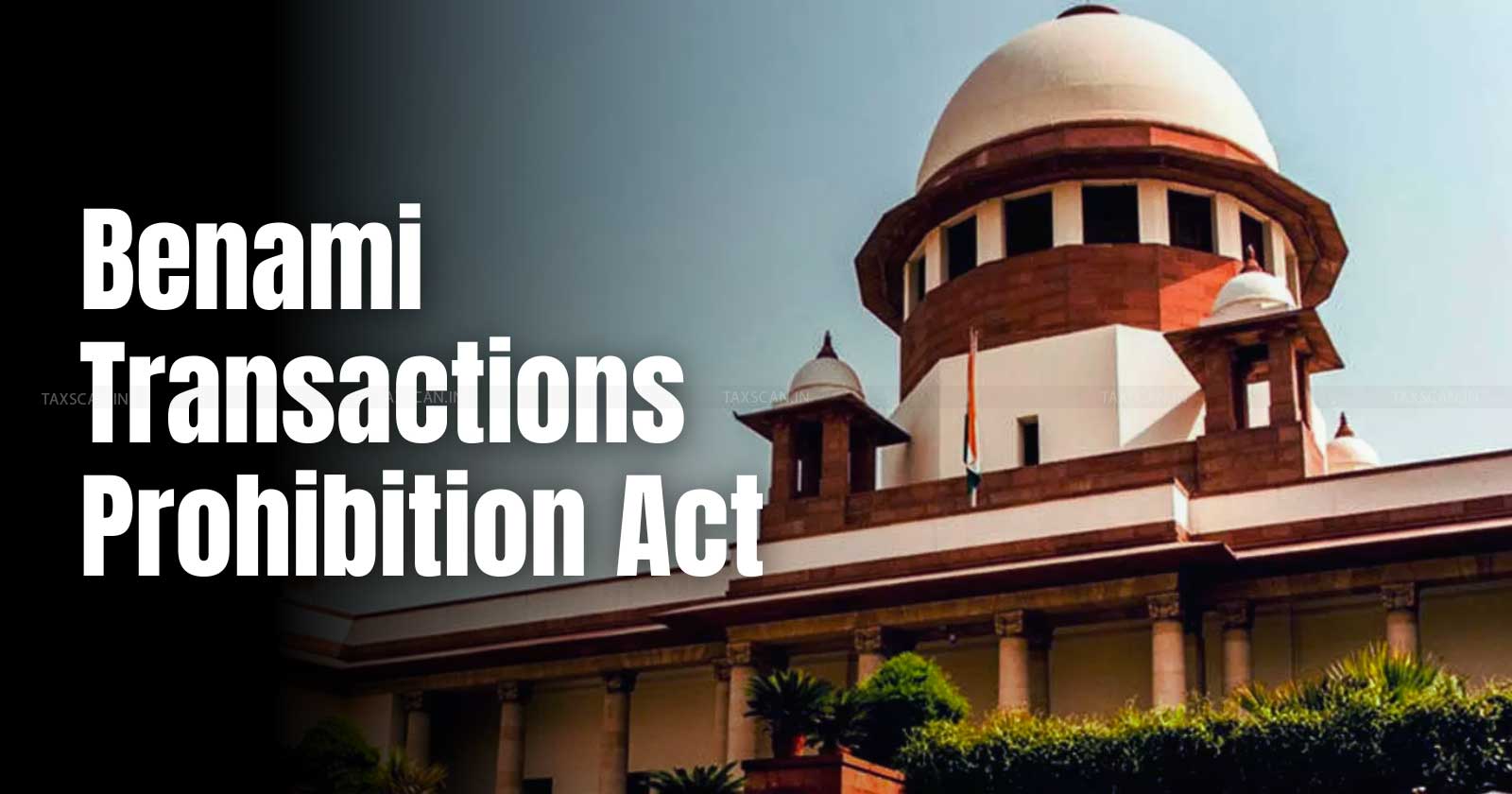Supreme Court set to Re-Adjudicate Constitutionality of Benami Transactions Prohibition Act, recalls Invalidation
The court noted that the constitutionality of certain provisions was not considered in the earlier ruling. Chief Justice of India DY Chandrachud announced that the case would be re-examined by a new bench to be established by him

The Supreme Court has retracted its August 2022 judgement, which had nullified prosecutions under the Benami Transactions (Prohibition) Act, 1988. A new bench will now reassess the case.
The Supreme Court's August 2022 ruling had invalidated specific provisions of the Benami Transactions (Prohibition) Act, effectively dismissing all prosecutions that occurred before the 2016 amendment. Chief Justice of India DY Chandrachud announced that the case would be re-examined by a new bench to be established by him. The bench indicated that the 2022 decision did not adequately address any constitutional challenges to the provisions of the 1988 Act, which allowed the central government to file a review petition.
Complete Supreme Court Judgment on GST from 2017 to 2024 with Free E-Book Access, Click here
On August 23, 2022, a three-member bench led by then Chief Justice NV Ramana concluded that the 2016 amendments to the benami property law could not be applied retroactively, thereby quashing investigations into transactions that took place before October 25, 2016. The court also deemed a provision of the 1988 Act, which stipulated a jail term of up to three years or fines for violations, as "unconstitutional" and "manifestly arbitrary."
While hearing the government's challenge to this decision, the Supreme Court noted that there was no direct challenge to the provisions of the unamended Act, and the issue of constitutional validity was not discussed in the prior judgement.
Complete Supreme Court Judgment on GST from 2017 to 2024 with Free E-Book Access, Click here
The bench emphasised that constitutional validity can only be determined when the relevant provision is explicitly challenged, and it cannot declare a provision unconstitutional without such a challenge being presented and debated.
The only legal question for the court was whether the Prohibition of Benami Property Transactions Act, 1988, as amended in 2016, should be applied prospectively, leading to the recall of the August 2022 judgement.
Solicitor General Tushar Mehta, representing the Centre, argued that the unamended Section 3(2) of the Act was struck down without any direct challenge to its validity. He further asserted that the requirement for mens rea (criminal intent) does not need to be explicitly stated in penal statutes.
In August 2022, the Supreme Court ruled that the forfeiture provision under Section 5 of the 2016 Act, being punitive, could only apply prospectively from its enactment date, October 25, 2016. Consequently, it declared that authorities could not initiate or continue criminal prosecutions or confiscation proceedings for transactions that occurred before this date, leading to the quashing of such proceedings.
Complete Supreme Court Judgment on GST from 2017 to 2024 with Free E-Book Access, Click here
With the recall of the 2022 judgement, the government regains the authority to enforce provisions prior to 2016 while confirming the prospective application of the 2016 amendments.
Support our journalism by subscribing to Taxscan premium. Follow us on Telegram for quick updates


